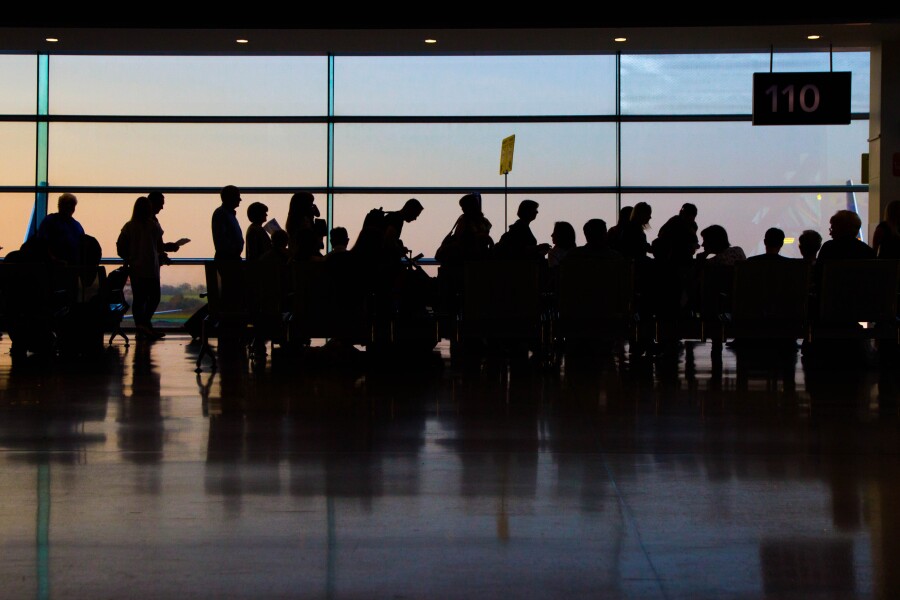
Ironheart | Moment | Getty Images
The summer travel season is in full swing, often leading to more flight delays and cancellations. However, travelers may not always be eligible for compensation for these disruptions, depending on the cause and the airline’s policies, experts say.
“In the U.S., airlines generally aren’t required to compensate you for delays or cancellations,” said Eric Napoli, chief legal officer at AirHelp, a company that assists passengers in claiming compensation for flight issues.
Peak Season for Flight Disruptions
Mid-June to late August is typically the peak period for flight delays and cancellations, according to Napoli. The Federal Aviation Administration (FAA) notes that this summer will see increased air traffic, frequent bad weather, and more use of the nation’s airspace.
Bad weather has been responsible for 66% of total flight-delay minutes so far this year, based on FAA data up to July 21. In 2023, this figure was around 72%. This data likely includes the global IT outage on July 19 that grounded thousands of flights.
“Volume” was another factor, causing 15% of delays this year, according to the FAA.
Summer usually brings a higher volume of passengers and flights, with schools out and millions of Americans on vacation, noted Hayley Berg, lead economist at Hopper. Indeed, 8 of the 10 busiest travel days of 2024 occurred in June, July, and August, according to FAA data.
Airline Compensation Policies
Airlines have a primary obligation to refund the ticket price and fees if they cancel a flight or make a significant change, regardless of the reason, according to the U.S. Department of Transportation (DOT). Consumers are entitled to a refund only if they decline an alternative option, such as rebooking on a different flight.
This rule applies even to nonrefundable tickets. However, the DOT does not currently define what constitutes a “significant” change, which is determined by factors like the length of the delay and specific circumstances.
Starting October 28, airlines will be required to promptly and automatically issue refunds for significant changes, defined as a delay of three hours for domestic flights and six hours for international flights, due to a new rule from the Biden administration.
Airline compensation policies for delays and cancellations vary. The Transportation Department’s dashboard outlines major carriers’ commitments to customers in such events. These carriers include Alaska, Allegiant, American, Delta, Frontier, Hawaiian, JetBlue, Southwest, Spirit, and United.
For example, all airlines commit to rebooking passengers on the same airline for free and providing a free meal if a cancellation results in a wait of at least three hours for a new flight. Most also offer a hotel stay for overnight delays. However, none offer cash compensation for delays of three or more hours.
These policies only apply to controllable delays and cancellations, meaning those caused by airline operations. The same obligations may not apply to situations outside their control, such as bad weather.
For instance, the delays and cancellations related to the global IT outage last month were considered a controllable event. A failed tech update by cybersecurity firm CrowdStrike affected Microsoft services used by several airlines.
Passengers flying internationally may have more rights depending on the rules of the destination country. For example, European Union law generally provides more compensation rights for passengers flying to and from Europe, according to AirHelp.
Tips for Passengers
Experts suggest several strategies to minimize the chances of flight disruptions and to better handle delays or cancellations if they occur:
– Book the first flight of the day. Flights departing after 9 a.m. are twice as likely to be delayed as those scheduled between 5 a.m. and 8 a.m., according to Berg.
– Avoid connecting flights to reduce the risk of disruption. If a connection is necessary, allow ample time for a layover. At least 45 minutes for domestic flights and 90 minutes for international trips is recommended, Berg said.
– Build in a buffer day. Allow extra time at your destination to avoid missing important events or plans in case of a delay or cancellation, Berg advised.
– Fly on less busy days. Traveling on weekdays like Tuesday or Wednesday tends to result in less flight traffic, Napoli said. This can reduce certain types of delays and increase the availability of open seats for rebooking. Tickets are often cheaper on these days as well.
– Pack smartly. Those with a carry-on bag or personal item should pack strategically in case of a delay or cancellation. Having a change of clothes, snacks, electronics, valuables, and a toothbrush on hand can be helpful if your checked bag is not available, Napoli said.
– Multitask while waiting. In the event of a delay or cancellation, use your time wisely. “Get in line to speak with an airline representative while also calling the customer support center,” Berg suggested. This increases your chances of speaking to a representative more quickly if multiple passengers are trying to get through simultaneously.